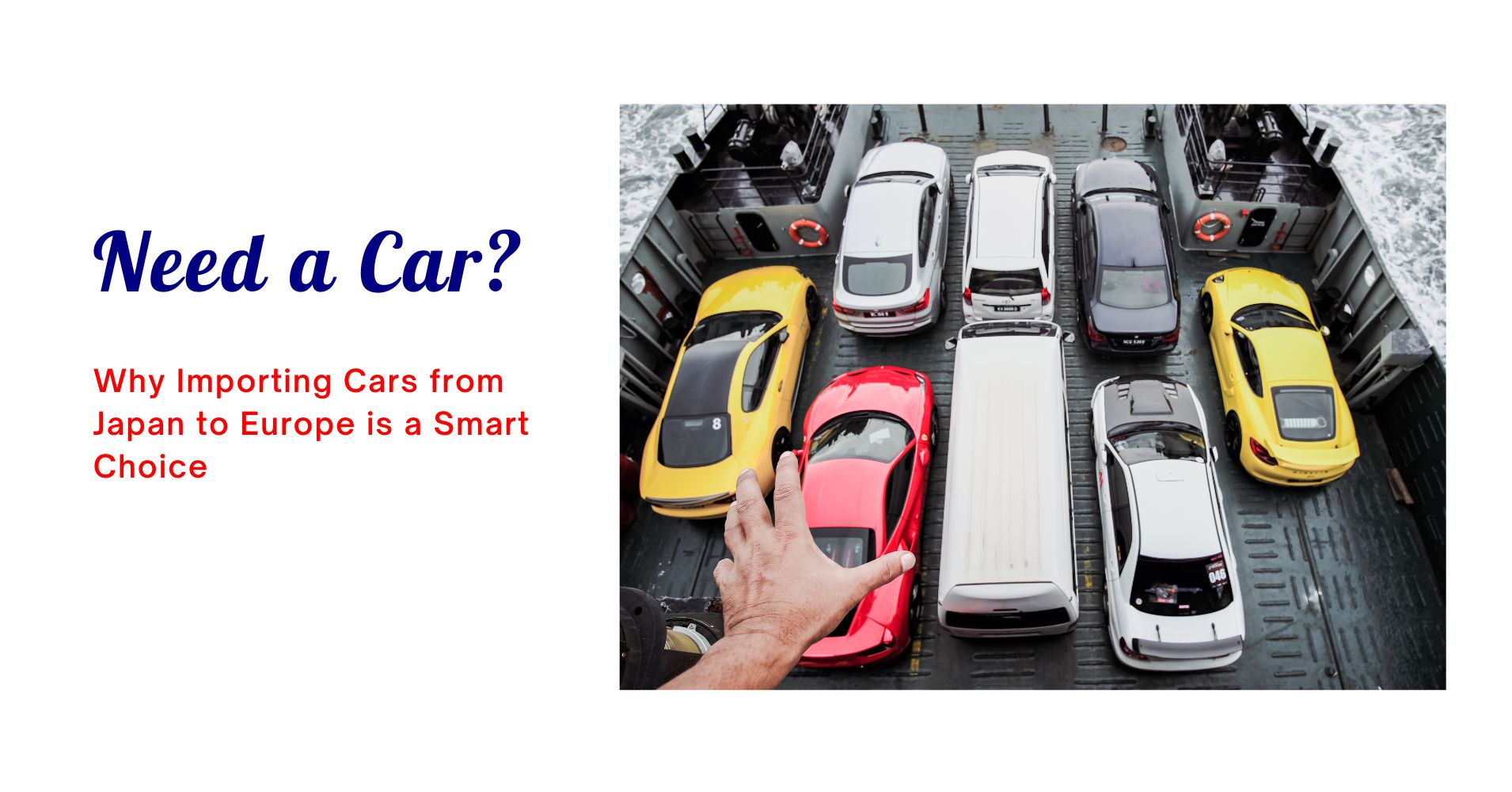
With the recent free trade agreement between Japan and the European Union, importing cars from Japan has never been easier or more affordable. The removal of a 10% tariff on Japanese cars and a 3% reduction on car parts has opened up new possibilities for European buyers looking to bring in high-quality, affordable vehicles. This agreement marks a significant opportunity for car enthusiasts and those looking for unique or rare models that aren’t available locally.
The Appeal of Japanese Cars in Europe
Why Importing Makes Sense
There are several reasons why many Europeans, particularly in the UK, are increasingly interested in importing cars from Japan. Japanese used cars are known for their excellent build quality, advanced technology, and affordability. These factors make them attractive to buyers looking for a great deal without compromising on quality.
Moreover, Japanese car auctions offer a wide range of models that may not be available in European markets. From well-equipped sedans to rare vehicles, Japan’s extensive selection caters to a wide variety of preferences and budgets.
Unique Models and Better Prices
Japan’s auto market is home to vehicles that are often well-maintained and fully equipped with the latest features. For buyers in Europe, the price of importing a Japanese car—including shipping and taxes—can be lower than purchasing a comparable model locally. Furthermore, Japanese automakers are known for producing reliable, fuel-efficient cars, making them appealing to eco-conscious consumers looking to lower their running costs over time.
Navigating the Import Process
Legal and Regulatory Requirements
Importing a vehicle from Japan involves a series of steps to ensure the car meets European safety and environmental standards. Japanese cars, especially those built for the domestic market, are often designed with different regulations in mind. For instance, right-hand drive vehicles dominate in Japan, but left-hand drive models are also available for European buyers.
One of the key regulatory processes is the Single Vehicle Approval (SVA) scheme. This ensures that imported vehicles meet the required safety and emissions standards before they can be registered and driven on European roads. Modifications may be necessary to bring a Japanese vehicle into compliance with local laws.
Registration and Taxation
Before driving your imported vehicle in Europe, it must be registered with the relevant authorities. In the UK, for example, you will need to notify HM Revenue and Customs (HMRC) through the Notification of Vehicle Arrivals (NOVA) service. This system helps determine whether import duties or VAT need to be paid on the vehicle.
In addition to taxes, your car must be issued a European Certificate of Conformity, which confirms that it meets EU regulatory standards. You’ll need to obtain this document from the dealer or manufacturer in Japan. For left-hand drive cars, a certificate of Mutual Recognition will be required to ensure the vehicle is road-legal in the UK.
Benefits of Japanese Imports
High-Quality Vehicles at Lower Prices
Japan is renowned for its automotive innovation and rigorous maintenance culture. As a result, used vehicles from Japan are often in excellent condition and come equipped with advanced technology, making them a great investment for European buyers. Whether you’re looking for a high-end luxury car or a reliable family sedan, you can often find more affordable options in Japan than in the European market.
A Diverse Range of Models
Another key advantage of importing from Japan is the access to unique models. Some vehicles sold in Japan are not available in Europe, allowing buyers to find rare or niche models that stand out on European roads. For car enthusiasts, this means gaining access to limited-edition cars or vintage models that are difficult to find locally.
Insurance and Maintenance Considerations
Insuring an imported vehicle in Europe can sometimes be challenging, particularly for cars intended for non-European markets. Insurance providers often evaluate imported cars differently, especially if the vehicle’s parts are not readily available. However, Japanese cars generally benefit from a wide network of support in Europe, making it easier to find spare parts and mechanics familiar with the brand.
Before finalizing your purchase, it’s a good idea to research insurance premiums, especially if you’re importing a performance vehicle, as the cost can be higher due to the car’s specifications.
Conclusion
Importing cars from Japan to Europe is becoming an increasingly attractive option for those seeking unique vehicles and better value for money. With the elimination of tariffs and streamlined import processes, buyers now have more access to the Japanese car market than ever before. While the import process may involve some extra steps, the benefits of owning a well-maintained, high-quality Japanese vehicle make it well worth the effort.
Whether you’re a collector looking for a rare model or a buyer seeking a reliable, affordable vehicle, Japan’s automotive industry offers something for everyone. With proper planning and the right documentation, importing your next car from Japan could be a smooth and rewarding experience.

